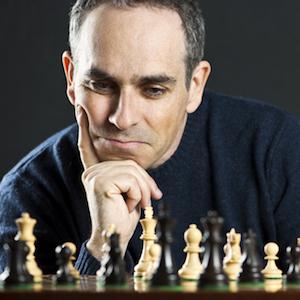American culture is dominated by a can-do attitude. The prevailing belief is that no matter who you are, you can do whatever you want, as long as you work hard enough. When little Johnny says he wants to be an astronaut, everybody cheers his ambition. However, those who know little Johnny are secretly thinking, "You ain't smart enough, kid."
Though we don't like to admit it, intelligence and IQ matter. Creative people tend to have higher IQs. The traditional view is that expertise, in general, requires a higher IQ. One researcher suggested in 1963 that a minimum IQ of 120 is necessary to graduate with a degree in math or physics. Indeed, a person's college major serves as a proxy for intellectual aptitude. Though results vary slightly according to which methodology is used, an article in Quartz lays out the general pattern:

As is most intelligence research, this is considered controversial. A competing hypothesis blames college admissions. According to this view, colleges select for students with higher IQs through a screening process that involves standardized tests, which correlate with intelligence. These students then get access to training, which produces expertise. Other students do not receive that training, so they do not have the opportunity to become experts. Adherents of this theory believe that IQ is more predictive of access to education but not expertise itself.
To decide which hypothesis is likelier to be true, a group of researchers examined people who do and do not play chess. Unlike college, there is no barrier to chess training. Anybody can pick up a chess book or watch YouTube videos. If the "access to training" theory is correct, there should be no difference in intelligence between serious chess players and non-chess players.
Do Chess Players Have Higher IQ's?
The authors performed a meta-analysis of the literature, focusing only on studies that measured cognitive abilities in people who self-identified as chess players or not. This design did not allow the researchers to determine causation (e.g., playing chess makes a person smarter, or being smart causes a person to be good at chess).
However, it did allow the researchers to ask, "Are people who play chess by their own free will more intelligent than people who do not?" If the answer to that question is yes, then that provides evidence that the "access to training" hypothesis for expertise is wrong. Furthermore, it provides indirect evidence that intelligence drives people toward certain fields and plays a role in how successful they are in those fields*.
After screening 2,287 papers, seven met the authors' criteria for inclusion. Combined, the studies involved 485 people. The results of the meta-analysis are shown below.

The average effect size (indicated by the diamond on the lower right) was d = 0.49, which means that, for whatever cognitive trait the study was analyzing (problem-solving, verbal ability, memory, creativity, etc.), chess players scored on average half of a standard deviation higher than non-chess players.
Chess Should Be Required in Schools
An interesting next step would be for the authors to determine what effect, if any, intelligence has on chess ability. Do chess grandmasters (the best of the best) have higher IQs than other serious chess players? Is there a correlation between IQ and chess ability?
In the mean time, as I have argued before, chess should be a required subject in American schools, just like it is in Armenian schools. As one teacher noted:
"Chess trains logical thinking. It teaches how to make decisions, trains memory, strengthens will power, motivates children to win, and teaches them how to deal with defeat. It's the only school subject that can do all this."
And maybe it even boosts IQ.
*Note: In chess, practice does not always make perfect. Some players require much less time and effort to achieve a certain skill level. This hints that IQ plays a role in innate chess ability.
Source: Giovanni Sala, Alexander P. Burgoyne, et al. "Checking the “Academic Selection” argument. Chess players outperform non-chess players in cognitive skills related to intelligence: A meta-analysis." Intelligence 61: 130-139. Published: March-April 2017. DOI: 10.1016/j.intell.2017.01.013




